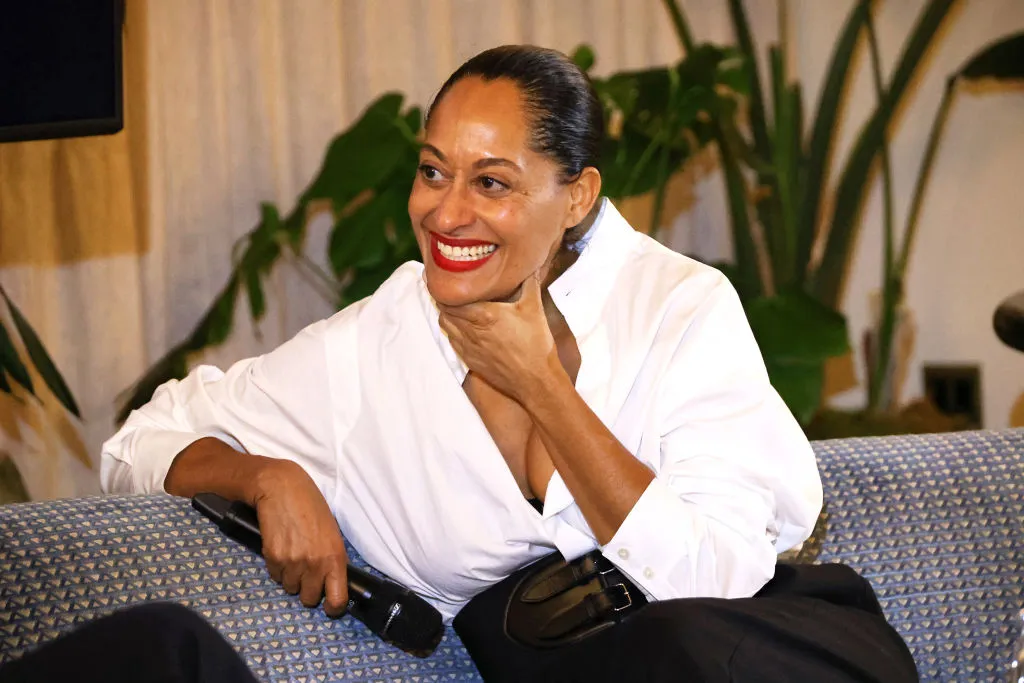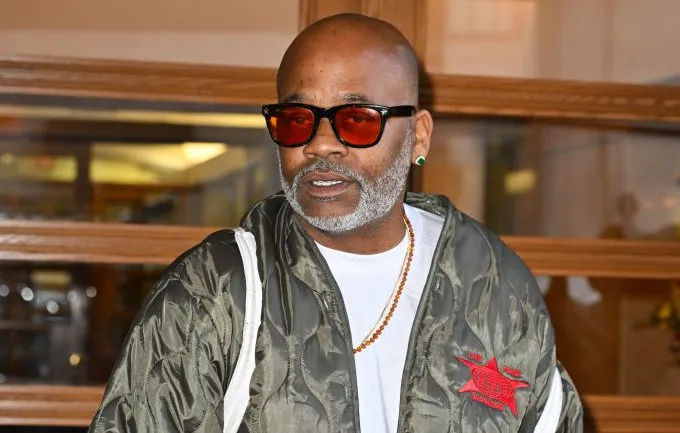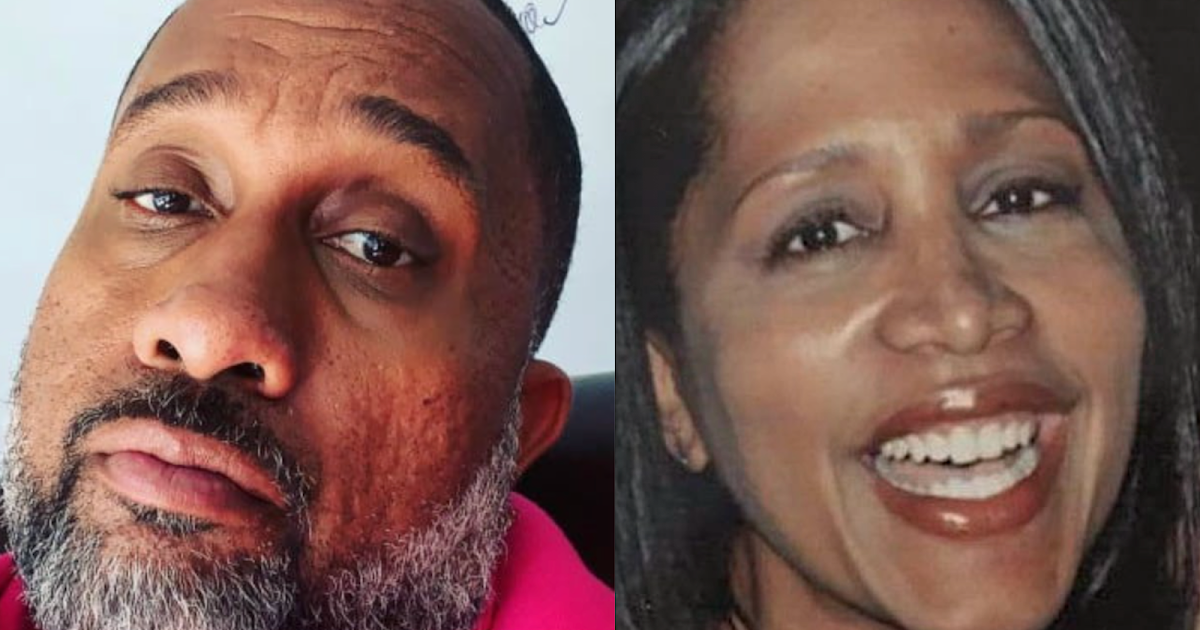Hollywood actress and pop culture icon Tracee Ellis Ross, widely celebrated for her elegance, confidence, and fierce independence, has opened up like never before. In a deeply emotional episode of Michelle Obama’s podcast In My Opinion (IMO), Ross, 51, shared intimate reflections about her life choices, the cost of freedom, and the quiet grief that sometimes comes with blazing your own trail.
The Black-ish star, who has spent decades redefining what it means to be a successful woman in Hollywood, revealed that despite her many accomplishments, she sometimes mourns the traditional milestones she never reached—marriage and motherhood. “I grieve the things that I thought would be and that are not,” Ross admitted. “I’m not married. I don’t have children… and I think I grieve that at times.”
A Candid Conversation That Sparked a Cultural Moment
What began as a personal reflection quickly transformed into a viral cultural conversation. Within hours of the episode’s release, the hashtag #TraceeEllisRoss began trending across social media platforms, igniting conversations about identity, societal expectations, and the emotional toll of nontraditional life paths.
Former First Lady Michelle Obama responded with empathy and wisdom: “That’s the pain of being a liberated woman,” she said. “The choice doesn’t mean the grief isn’t there.”
Their raw and heartfelt exchange resonated particularly with Black women, many of whom shared similar experiences—balancing professional achievement with lingering personal sorrow. Fans flooded platforms like X (formerly Twitter) and Instagram with comments like, “Tracee just said what so many of us feel but never say out loud.”
Redefining Womanhood in Hollywood
Tracee Ellis Ross has long been a vocal advocate for broadening the definition of womanhood. Despite being the daughter of Motown legend Diana Ross, Tracee made her own name in entertainment, starring in hit shows like Girlfriends and Black-ish, and becoming a role model for women everywhere through her authenticity, humor, and grace.
In a 2020 interview with Marie Claire, she said, “I am the result of what my mom dreamed for herself.” Those dreams, however, didn’t center around marriage or children, but rather around independence, creativity, and ownership of one’s identity.
Ross continued that message in her viral 2021 TED Talk, where she discussed detaching self-worth from romantic relationships. “I used to dream about my wedding day,” she said. “Now I dream about peace.” The talk was widely shared and praised for its vulnerability and radical honesty.
The Silent Struggle Behind Empowerment
While Tracee Ellis Ross is often seen as the epitome of self-assurance, she pulled back the curtain during her IMO podcast appearance to reveal the emotional complexity behind her strength. “Why is that the thing that makes me worthy? I do know that I’m worthy. And yet, I still have these dreams,” she said. Her words highlighted the paradox many face—being fulfilled yet still yearning for something different.
Psychologists often refer to this as disenfranchised grief—the type of sorrow that is overlooked or invalidated by society because it doesn’t fit the conventional mold of loss. Ross naming and giving voice to this feeling was, for many, a revolutionary act.
Celebrities and Fans React: A Shared Experience
The reaction from the entertainment industry and fans alike was swift and emotional. High-profile figures such as Gabrielle Union, Kerry Washington, and Ava DuVernay praised Ross for her honesty and bravery. “This is what leadership looks like,” DuVernay posted. “Tracee’s transparency gives others permission to live authentically.”
Listeners around the world echoed this sentiment. One fan wrote, “I love my freedom. But yeah, I cry sometimes. That doesn’t mean I’m broken. It just means I’m human.”
The Cultural Power of Vulnerability
In an era dominated by carefully curated social media lives and highlight reels, Tracee Ellis Ross’s confession reminded the world of a deeper truth: Fulfillment isn’t binary. You can hold both joy and grief at the same time. You can feel empowered and still long for love. You can be free and still feel the sting of solitude.
Ross’s truth struck a collective nerve, not because it provided answers, but because it made space for complexity. Her vulnerability challenged the pressure for women—especially Black women—to always appear strong, composed, and content.
Michelle Obama’s Insight: Freedom Comes at a Cost
Michelle Obama’s response was as impactful as Ross’s admission. As someone who’s navigated immense public scrutiny and private challenges, Obama recognized the quiet toll of forging a unique path. Her comment—”The choice doesn’t mean the grief isn’t there”—highlighted the silent emotional cost that often accompanies freedom and agency.
Together, their conversation became more than a podcast episode—it became a cultural touchstone.
Final Thoughts: A Redefinition of Strength
Tracee Ellis Ross’s revelations mark a turning point in the ongoing dialogue about what it means to be a strong woman in the entertainment industry—and in life. Her decision to speak openly about disenfranchised grief and the emotional complexity of her journey is a powerful reminder that success isn’t measured only by traditional milestones. It’s also about self-acceptance, emotional truth, and the courage to embrace all parts of one’s story.
Her words didn’t just break the silence; they built a bridge—for every woman who has ever wondered if they were enough. And in doing so, she redefined strength not as stoicism, but as radical honesty.













